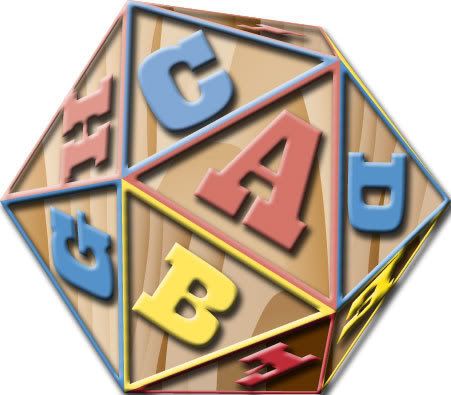There are a lot of similarities between five and six-year olds as far as gaming choices. However, there are also some important changes in development (memory and attention span being the major ones) and some kids are starting to organize their world (or starting to see their world organized as the case may be). Again, this is just a high-level overview, so please do not be insulted if this doesn’t match your experiences/expectations.
Is very active. Is often noisy, restless, and exuberant. Likes to participate in activities and perform small tasks, though they still may be difficult to do. Dislikes being a spectator. Needs concepts taught in concrete ways. Has improving memory. Is talkative, and asks many questions. Is learning to make decisions, but often is indecisive. Has an increasing attention span. Likes reading, writing, singing, hearing stories, and pretending. Is more interested in group activities and interacting with playmates, but is still self-centered. Is sometimes bossy, aggressive, and unkind to peers. Has unstable friendships. Is concerned with how others treat him or her. Is eager for social approval. Is boastful. Exaggerates and criticizes. Is easily excited, silly, and giggly. Can be generous, affectionate, and compatible, but mood can change easily. Is concerned with good and bad behavior, particularly as it affects family and friends Sometimes blames others for wrongdoing.
Suggestions for gaming:
Be patient with the child’s abundant energy and restlessness. Play games that have activities such as writing, coloring, cutting, pasting, and molding clay – games that allow the child to use his or her energy (the Cranium Cadoo game jumps immediately to mind). Pick games with the child’s interests in mind, which will not necessarily be the same as yours – come on, suck it up and take one for the team. Use pictures, maps, flannel cutouts, miniatures, and other visual materials to help focus attention when role-playing where attention may wander without something physical to look at/hold/fold/spindle/mutilate (of course, there is the likely danger of attention focusing completely on the handout and not the storyline – make sure to give them time to really LOOK at things, i.e. let ‘em play with it). Introduce them to games other than the roll-and-move type; those that allow the child to make decisions are what you should be looking for. Discuss the importance of choosing the right strategy (but don’t overdo it – just introduce the idea), and allow the child to practice making decisions with limited choices. Cooperative games can provide a safe environment to play and have fun together without the child feeling picked upon. Praise the child’s specific efforts so he or she feels less need to boast. Do not criticize. Laugh with him or her, but do not laugh at him or her. Encourage positive moods by setting an example for playing with calm, stable behavior (save the “smack-talk” for other adults – even if it is intended as good-natured, it can sometimes be hard for children to know the difference); be a good loser AND (sometimes more importantly) a good winner. Future gamers everywhere will thank you for raising someone with good sportsmanship. Show the child how to be concerned with and responsible for his or her own game play and how to improve it (again, PLEASE don’t overdo this!). Help them identify good moves, but let them play their own game – let them experiment and then discuss specifics (good and bad) later. Assure the child that everyone makes mistakes.
This is a weird age/stage where a child is a bit “in-between” so-to-speak. They may be capable of playing more “advanced” games, but they find a simple joy in their old favorites. My kids found comfort in repetition, whereas us adults tended to find it mind numbing and a bit aggravating. Be patient. I’ve believe that they are on the cusp of a Great Leap Forward (meaning gaming opportunities for the child and not the economic disaster led by Mao Zedong in 1950s China). Be patient and understand that you are laying the groundwork and a strong foundation for a lifetime of gaming goodness.

No comments:
Post a Comment